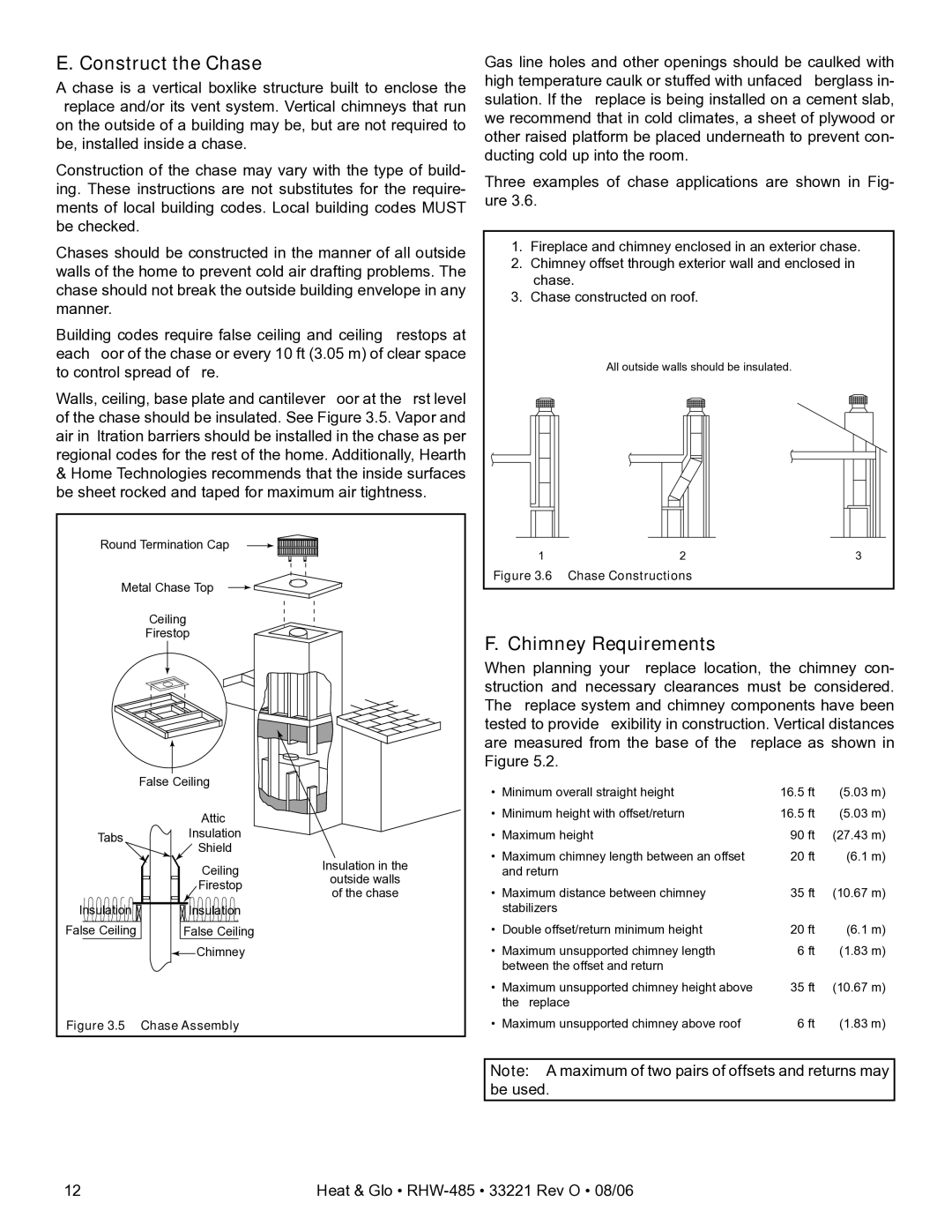RHW-485, RHW-485H specifications
Hearth and Home Technologies (HHT) is a leader in the manufacture of innovative and high-quality hearth products, and their RHW-485H and RHW-485 models are no exceptions. These wood-burning heaters are designed to provide efficient and effective heating solutions for residential spaces while offering an elegant aesthetic that complements various home decors.One of the main features of the RHW-485H and RHW-485 is their impressive heating capacity. Both models are designed to heat areas up to 2,000 square feet efficiently, making them ideal for large living spaces or open-concept homes. This significant heating capability is made possible by advanced combustion technology that allows for a longer burn time, ensuring extended warmth throughout the night.
Another defining characteristic of these units is their clean-burning technology. HHT has incorporated a unique air wash system that enhances combustion efficiency and minimizes emissions. This ensures that homeowners can enjoy the beauty and comfort of a wood fire while adhering to environmental standards. Furthermore, these models have received certification from the EPA for meeting stringent guidelines, making them an excellent choice for those who are environmentally conscious.
In terms of design, the RHW-485H features an attractive cast iron door with a large viewing window. This allows for an unobstructed view of the mesmerizing flames and adds a touch of sophistication to any room. The RHW-485, while similar in heating efficiency, offers slightly different aesthetic options, giving homeowners the ability to choose a model that aligns with their personal style.
Both models come equipped with a robust refractory system that enhances heat retention and distribution. This technology ensures that heat is released evenly and efficiently, providing consistent warmth without the need for constant refueling. Additionally, they feature adjustable air controls that allow users to manage burn rates and heat output according to their preferences.
Another important aspect is the ease of installation and maintenance. The RHW-485H and RHW-485 have been designed with user-friendly features, including accessible clean-out ports that simplify ash removal. This reduces the hassle of routine care, allowing homeowners to enjoy their fireplace without extensive upkeep.
In conclusion, Hearth and Home Technologies’ RHW-485H and RHW-485 models are premium wood-burning heaters that combine efficiency, elegance, and environmental responsibility. They offer a perfect blend of modern technology and classic design, making them an excellent choice for discerning homeowners looking to enhance their living space with warmth and style.

